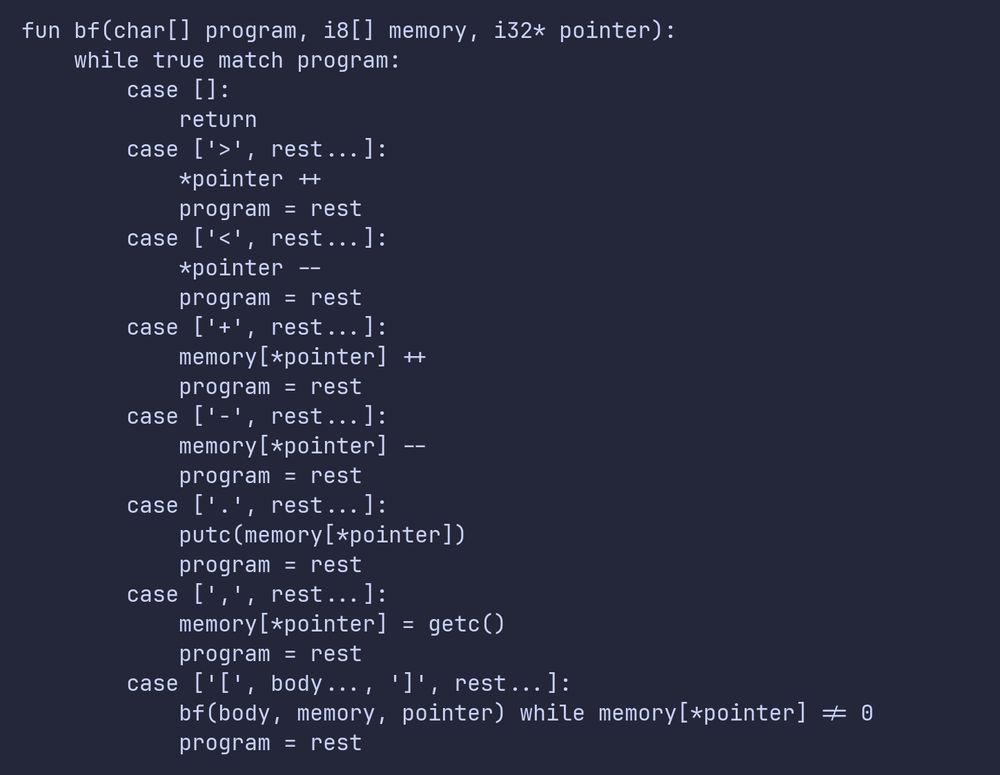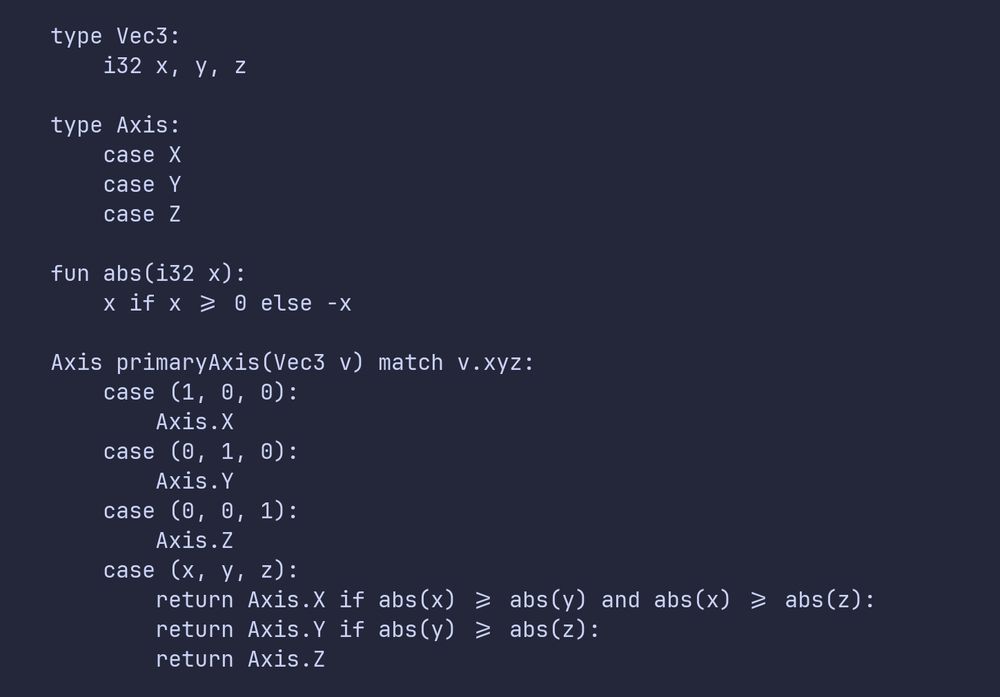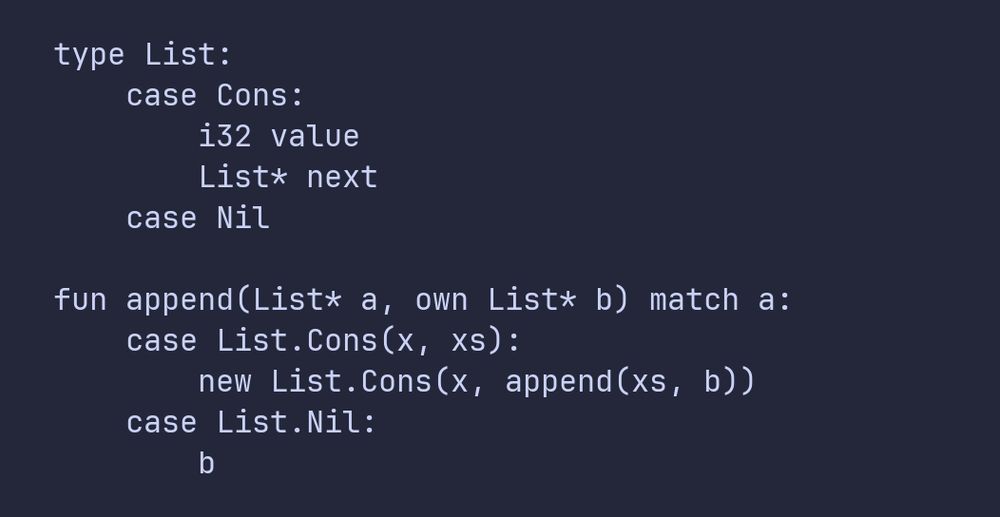

*accidentally pass the test despite doing at least one illegal downcast from i64 to i32

*accidentally pass the test despite doing at least one illegal downcast from i64 to i32

one of the goals of clover is that generics should really act like compile-time multimethods, so method lookup is even more permissive than C++, to the extent that multiple instantiations can be required if a function is used in multiple compile-time contexts

one of the goals of clover is that generics should really act like compile-time multimethods, so method lookup is even more permissive than C++, to the extent that multiple instantiations can be required if a function is used in multiple compile-time contexts


benchmark is 10k quicksort functions
clover ofc trashes both 😎

benchmark is 10k quicksort functions
clover ofc trashes both 😎















[10/12]

[10/12]
[9/12]

[9/12]
[8/12]

[8/12]
[6/12]

[6/12]
[5/12]

[5/12]


